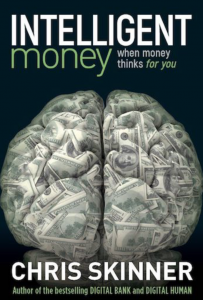
Welcome to Mob76 Outlook and our readers, Hannah
A pleasure to be here; thanks for inviting me
So, please tell us about Hybr, I understand you’re solving the ‘Hunger Games’ problem of student renting
Yes. Hybr is a platform that aggregates all available student homes, providing a curated and supportive customer journey for first-time renters.
We describe ourselves as the marketplace of student rentals for long-term and short-term tenancies. Hybr aggregates all available homes (across landlord profiles) and gives young renters the support they need at key stages in their rental journey, while allowing landlords to fill rooms fast with pre-qualified and engaged young tenants.
The motivation hits close to home, coming from my own experience navigating the Hunger Games that is UK student renting.
I launched Hybr out of frustration with the appalling lack of support first-time renters get in the UK and we’re now live across the UK, with more than 130,000 rooms managed by a team of 14.
We already partner with 25 UK universities and are building a product to address a market worth £46 billion alone in the under-30s rental sector in the UK.
What is the current state of play with rents rising everywhere?
This lack of housing support and the financial squeeze with rising rents has cost UK universities more than £13 billion in revenue with the highest dropout rates in 2022; more than ever seen before in the UK.
Universities are a huge contributor to GDP and should be a source of pride for our economy, but the housing crisis is a brand and financial issue for them as well as affecting the mental health of young people navigating their first adult issues and responsibilities.
At the same time, landlords lose out on over £2 billion of rent a year lost in voids due to the inefficiencies involved when trying to let out their portfolios.
We’re seeing a rise of institutional landlords in the UK and a great exodus of private landlords, (copying Europe & the US) meaning institutional landlords are looking for ways to reduce OpEx and build more scalable systems to expand their portfolios with the rising costs of being a landlord.
Walk us through the user experience
A student comes on to the platform, searches for a filter and finds a property to make an enquiry, book a viewing slot, or skip to the offer stage. They will then receive immediate feedback about whether they match what the landlord is looking for.
They will then secure the booking, and be introduced to the landlord with clear next steps where they can request additional services such as bills.
Landlords plug-in via API to upload their listings, we vet them based on compliance documentation, we understand their affordability/referencing checks, and we market their listings.
Landlords plug-in via API to upload their listings, we vet them based on compliance documentation, we understand their affordability/referencing checks, and we market their listings. We only send over pre-qualified tenants ready to move in that match their requirements. We automate void management, and accelerate lease up across their portfolio by offering a connected student marketing and booking journey that prioritises their tenants experience.
What has Hybr achieved to date?
We have helped more than 25,000 students find suitable housing, transforming their rental experiences.
Over the last 12 months, Hybr has experienced substantial growth. The company’s portfolio has expanded more than 350%, growing from 22,000 rooms to more than 100,000 with an additional 100,000 rooms in the pipeline.
Crucially, Hybr has generated more than £15 million for their clients.
How have you funded this impressive journey?
We have evolved from a bootstrapped one-woman band, funded by winning university competitions and grants – to raising a pre-seed round of £975,000 in April 2022, Last year we completed a staggering £3.24 million seed round in November 2023.
How have you found it being a female founder?
There is a disgraceful lack of funding that goes towards women entrepreneurs in the UK, where businesses founded exclusively by women received just 2% of all VC funding in 2022.
Only 30% of senior management positions in Real Estate in the UK are occupied by women and only one in three UK entrepreneurs is female: a gender gap equivalent to 1.1 million missing businesses! In the PropTech founder community, it is mostly men.
Moreover, the property industry has the biggest gender pay gap, so I’m proud to have raised pre-seed and seed as a woman… and what was a very tricky VC climate in 2023.
What inspired you to set up Hybr?
While I was a student at the University of Bristol, I got a First studying Liberal Arts, but more importantly experienced first-hand the anxiety, confusion, and panic of renting as a student.
There were fights between students and landlords, there were stolen deposits, there were drop-outs over mental health issues caused by housing concerns, and there were tears over unknown fines. I knew this was what I wanted to spend my time solving.
What did you do before founding Hybr?
My career started like many university students do, as an intern. As an intern at Lucozade, I worked on the first Love Island campaign where I got to experience targeting Gen-Z for the first-time.
I then went on to work at Africa’s first Unicorn, Jumia (an online ‘Amazon’-esque marketplace), in customer service. The valuable life lesson of turning a negative experience into a positive one was learnt quickly, after being screamed at Swahili by angry customers.
After leading student ambassador teams at Red Bull and Student High Street while I was studying, I saw how easily brands can mobilise student communities by building great referral networks.
Why do you think you are you better than your competitors?
We are the only platform focused on the first-time renter that is more than just a Purpose-Built-Student-Accommodation (PBSA) aggregator focused on the international student.
This is a young consumer player – we will be the global aggregator of all homes (not just PBSA) for young renters and lock young renters in with our financial support, risk assessment model & all-in-one platform.
We care about the customer experience, and we’re not trying to create a jack-of-all-trades. We want to be the best at matching students to vetted landlords, optimising for a happy tenancy through a platform that cares. We see competitors as partners. Our approach is to add value to the end-user and partner with different players in our ecosystem to do so.
What are your plans for 2024?
Customer acquisition. We want to increase impressions, sessions and enquiries. We need top of funnel demand and supply by growing our student user base and engaging with students and parents.
Moreover, we want to grow our landlord community – onboarding institutional and private landlords. We want to be a household name. We want to tell our story and showcase our student-centric brand, and mission to ensure that every student has the support they need when they rent in the UK.
We deeply care about every student – we care that their individual needs are met, that they find the right house that matches what they are looking for, that they find the right housemates, that they understand the rental process, that they’re never alone no matter what happens before or during their tenancy.
Specifically over the next 12 months, we are on track for 5X revenue growth.
That’s awesome, Hannah, thanks for sharing
My pleasure, I hope your readers find it interesting.
================



